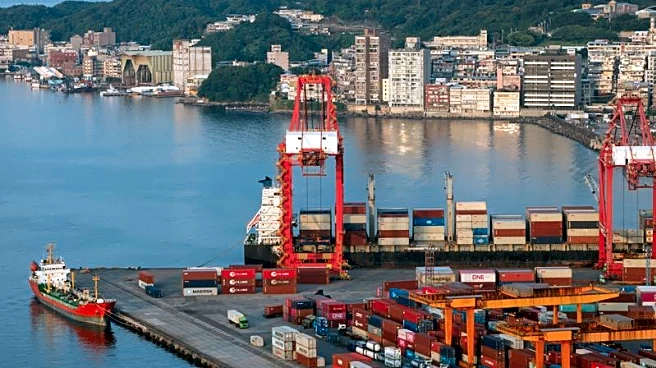What's Happening?
The Trump administration has imposed sanctions on Russia's two largest oil companies, Rosneft and Lukoil, as part of efforts to pressure Moscow into agreeing to an immediate ceasefire in the ongoing war with Ukraine. President Trump announced the sanctions,
citing the need to stop the conflict and expressing hope that the measures would not be long-lasting if the war ends. Treasury Secretary Scott Bessent emphasized the importance of these sanctions in cutting off funding to the Kremlin's war efforts. The sanctions align with similar actions taken by the United Kingdom and the European Union, which have also targeted Russian energy sectors.
Why It's Important?
The sanctions represent a significant escalation in the U.S. response to the conflict in Ukraine, aiming to weaken Russia's economic capabilities by targeting its vital oil industry. This move could have substantial implications for global oil markets and international relations, particularly if secondary sanctions are applied to entities dealing with the sanctioned companies. The decision underscores the U.S. commitment to supporting Ukraine and pressuring Russia through economic means. However, the effectiveness of these sanctions will depend on their implementation and the cooperation of international allies.
What's Next?
The impact of the sanctions will be closely monitored, with potential for further actions if Russia does not comply with ceasefire demands. The U.S. is urging its allies to join in these sanctions, and further diplomatic efforts are expected to continue. The situation remains fluid, with the possibility of additional measures if the conflict persists.
















